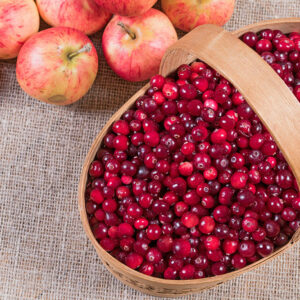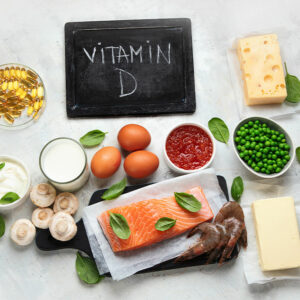
4 foods to avoid when affected by Crohn’s disease
People affected by Crohn’s disease can experience debilitating flare-ups with symptoms such as stomach ache, cramps, and diarrhea. Certain foods can trigger or worsen these symptoms, especially when consumed during a flare-up. Avoiding specific triggers could help people manage Crohn’s disease effectively, decrease digestive problems, and improve intestinal repair. While there is no clinically validated food for inflammatory bowel disease, eliminating a few trigger foods could soothe gastrointestinal problems and make the condition more manageable.
Whole grains
Crohn’s disease flare-ups may require a food-related adjustment to include low-fiber alternatives as a temporary solution until the symptoms subside. Fiber-rich meals that include whole-grain foods such as bread and bran can generate a lot of activity in the digestive tract. This can aggravate the condition by irritating the intestines and exacerbate the symptoms of Crohn’s disease. So, during a flare-up, it might be best to opt for low-fiber foods. When one is going through remission, changing to a high-fiber diet can help improve digestive well-being.
Dairy products
People with Crohn’s disease may also have an intolerance to dairy products. Lactose intolerance implies that one’s body cannot adequately process lactose, i.e., the sugar in milk, yogurt, and other dairy products. As a result, people can experience cramps, bloating, diarrhea, and gas if they have dairy. Milk products are high in calcium and protein, so if people avoid them entirely, they must supplement these nutrients from other food sources. To stay healthy while trying to minimize Crohn’s effects, one should try getting these nutrients from green leafy veggies, enriched juices, and cereals.
Issues with digesting certain foods may also need to be resolved by taking supplements and vitamins. These supplements may aid in the prevention of malnutrition induced by the small intestine’s failure to absorb minerals from meals. Furthermore, if the meal plans are severely restrictive due to flare-ups, a multivitamin can be useful. Calcium is a vital vitamin to consider, especially if one does not consume many milk products. The most common dietary deficiencies are those of folate and fat-soluble nutrients. This is based on the severity of the disease, the treatment plan one might be following, and whether or not one has had any resection operations. While supplements might be beneficial, one should consult your doctor and a nutritionist to avoid going overboard.
Spicy food
Spicy meals may aggravate Crohn’s symptoms; however, the effect differs from person to person. Doctors frequently advise Crohn’s disease patients to maintain a food log of everything they consume and in what quantities. One can note down any signs they observe after consuming various foods. Individual food triggers that may trigger Crohn’s symptoms should be identified, and a healthy eating plan can be developed in collaboration with a physician or a nutritionist. It is critical to understand which meals are suitable and cause no harm. For instance, if some spices cause irritation during a Crohn’s flare-up, one should substitute these with mild herbs and modest portions of lime juice. It should be noted that although spicy foods, milk products, liquor, and high-fiber grains are foods that may aggravate symptoms, they are not causal factors for the disease.
Fried or greasy food
Fats in foods such as fried chicken and creamy sauces may not be fully digested in the small intestine of people affected by the condition. This can induce Crohn’s disease symptoms such as cramping or watery stool. People with the condition should choose baked, grilled, and steamed dishes over fried and oily foods. Most patients are told to limit fatty foods if they have fatty stools. An effective option for safeguarding one’s health is to eliminate junk food from their meals.
So, the key to managing the symptoms of Crohn’s disease is identifying one’s food triggers and avoiding such foods. So, the above-mentioned foods should be avoided or limited during a flare-up.





